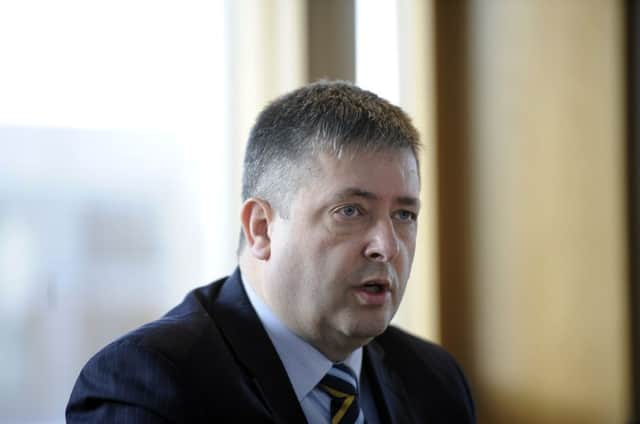Call for Contempt of Court review in internet age


The Lord Advocate Frank Mulholland believes Scotland’s Contempt of Court Act must be altered to take account of the rise of online activity and the change in the law that led to the conviction of the World’s End murderer.
Writing in Scottish Legal News Annual Review 2015, Mulholland suggests the law is no longer adequate to deal with the explosion of online information with the potential to prejudice criminal cases.
Advertisement
Hide AdAdvertisement
Hide AdA key part of the contempt law is preventing the publication of material which could influence a jury and jeopardise the chances of an accused receiving a fair trial.
In particular, Mulholland expressed concern about the 1981 Act’s ability to deal with challenges posed by the ending of the centuries-old double jeopardy rule, which used to prevent a person from being brought before the courts for a second time on the same charge after being acquitted.
Ending double jeopardy led to Angus Sinclair being convicted of the murders of Helen Scott and Christine Eadie following a night out in Edinburgh’s World’s End pub in 1977. The law change meant Sinclair was convicted in November last year, despite being acquitted of the crimes in 2007.
Sinclair’s most recent trial saw the Crown Office ask media organisations to remove coverage of the previous trial from the internet as well as details of his previous convictions in an attempt not to prejudice the case.
In his article, Mulholland said that the time was right to change the Act and added that the Scottish Law Commission was “ideally placed” to undertake the review.
“There are problems with the Act which have arisen as a result of the passage of time, changing social habits and attitudes and developments in modern communication and the law,” said Mulholland.
“The change in the double jeopardy law has highlighted the need for reform. The current Act did not foresee this change in the law.” The Sinclair trial saw the mainstream media take down archives relating to the case. But media organisations pointed out that this action was taken despite a plethora of online material being available to the public from other sources.
Although Mulholland’s article does not make any specific suggestions on how the Act should be changed, he said: “During my time as Lord Advocate I do not wish to see a breakdown in the process by which both responsible publishers and the courts uphold the rule of law, which is why I believe the time has come for the Act to be looked at in light of the dramatically changed media landscape and changes in other legislation.”
Advertisement
Hide AdAdvertisement
Hide AdIn his article, Mulholland suggested research ought to be done to find out the effect of information about a case on a juror’s judgment.
“Do we actually know what the effect of such information is on jurors who give an oath to well and truly try an accused according to the evidence?” Mulholland asked.
Scotland on Sunday understands that Mulholland wants a solution that is appropriate and practical for an era that has seen the internet revolution. Among the approaches likely to be explored by the review, would be levelling the playing field between the mainstream media and the internet, including relaxing the requirement for newspapers to take down archive material when the information is already on the internet.
Another option likely to be examined would be to trust jurors to differentiate between prejudicial material and the evidence laid out in the court room. One approach would be for judges to lay out jurors’ responsibilities more robustly.
The Lord Advocate’s move was welcomed by John McLellan, director of the Scottish Newspaper Society. McLellan said: “Contempt legislation is a minefield and the principles haven’t altered much since the Contempt of Court Act was passed in 1981.
“But as we all know, the communications and information landscape is unrecognisable from that of 30 years ago. It has become even more complex in Scotland since double jeopardy was abolished and before the recent re-trial of the World’s End killer Angus Sinclair trial the wide availability of archive material was the subject of considerable discussion and concern. Thankfully the trial passed off without issue, but there is no guarantee it will be the same for future proceedings in similar circumstances. There is no question the basic principle of a fair trial must be protected, but the law must also recognise the realities of the digital age and this review is both timely and welcome.”
A Scottish Government spokesman said: “Decisions about contempt of court in individual cases are matters for the independent courts. We are aware of concerns raised by the Lord Advocate about the operation of the existing contempt of court legislation and we are open to listen to views on this important issue from the judiciary, Crown and other relevant interests to ensure that the media can fulfil its role whilst safeguarding the interests of justice.”
FOLLOW US
SCOTSMAN TABLET AND MOBILE APPS